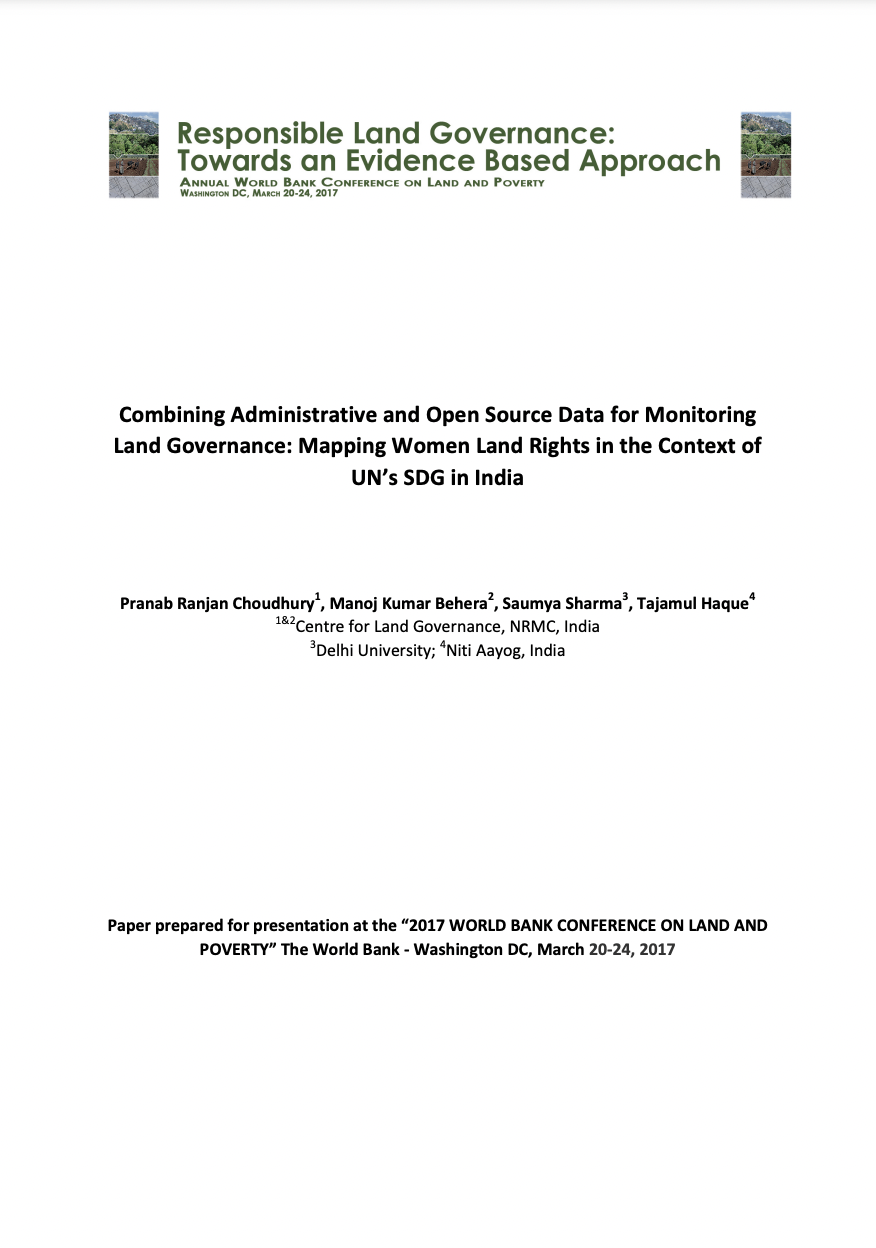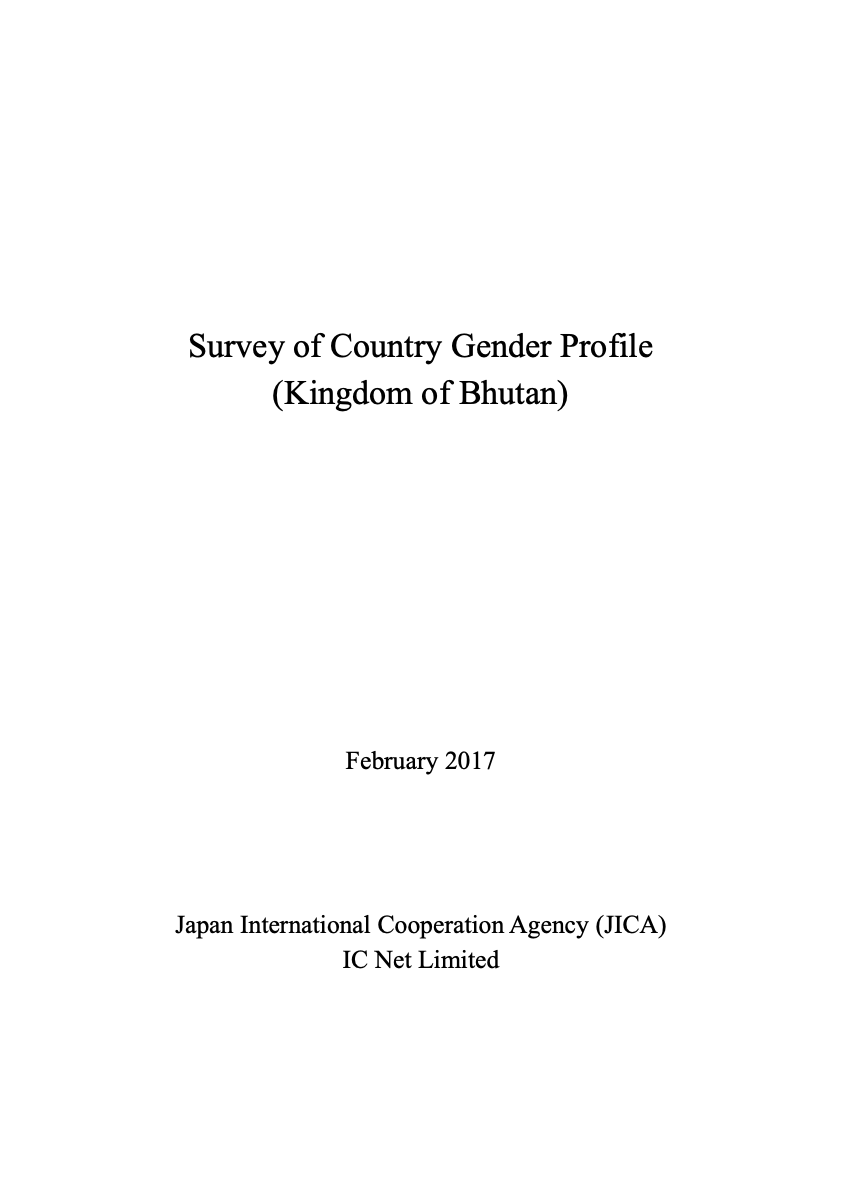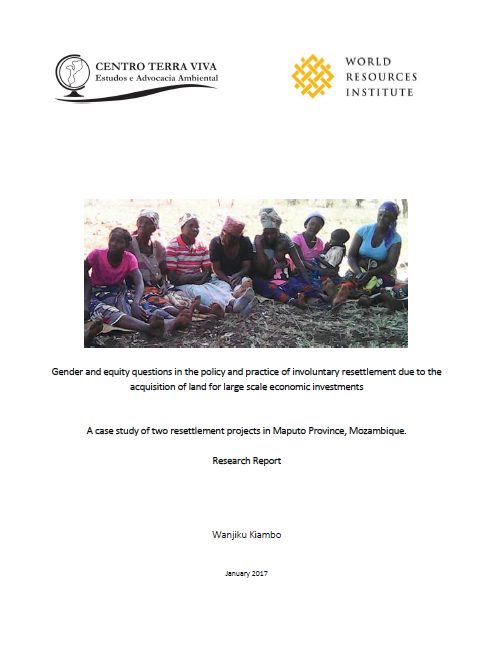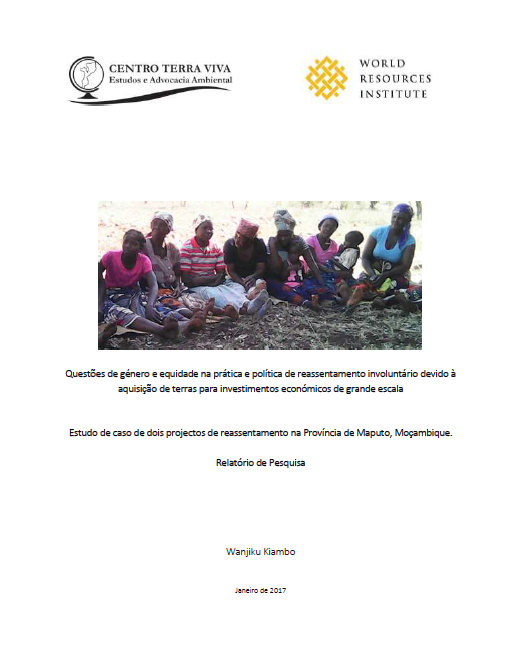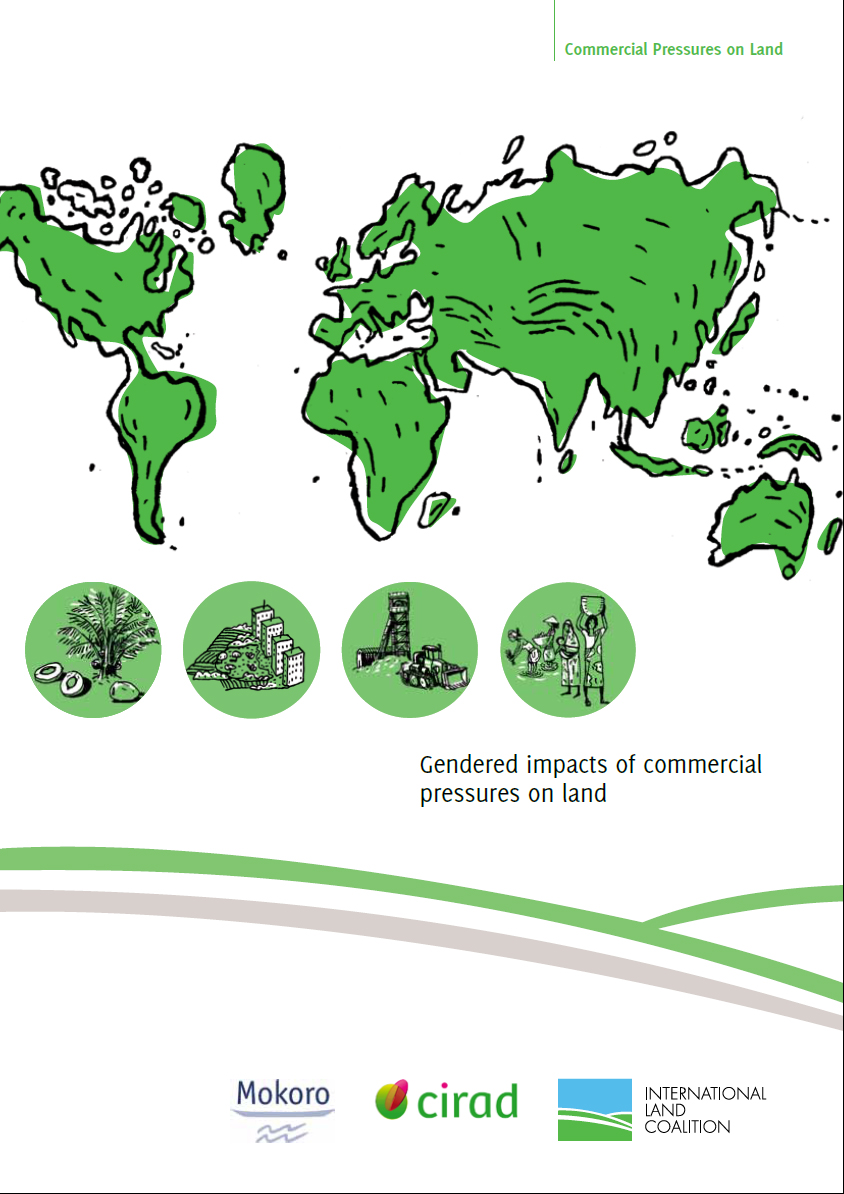Using Administrative Data for Monitoring and Improving Land Policy and Governance in India
The study tried to assess the state of data in India, particularly to track and report two critical land governance indicators viz. women land rights and forest rights, critical to ensure equity and sustainability in terms of public policy.
With UN’s SDG, defining similar indicators, study also attempts in aligning them around SDG indicators. Status of these two parameters were analyzed using nation-wide datasets collecting whole population data, through census of India, Agriculture Census operations following robust processes and reporting them open access.

